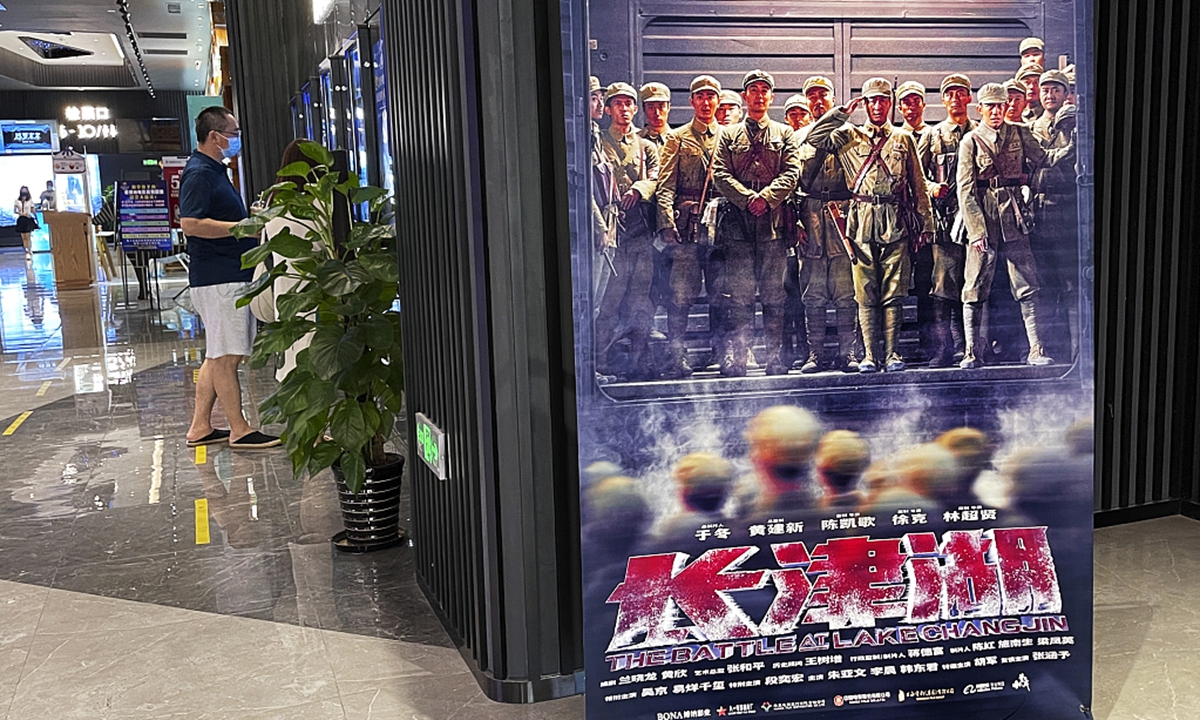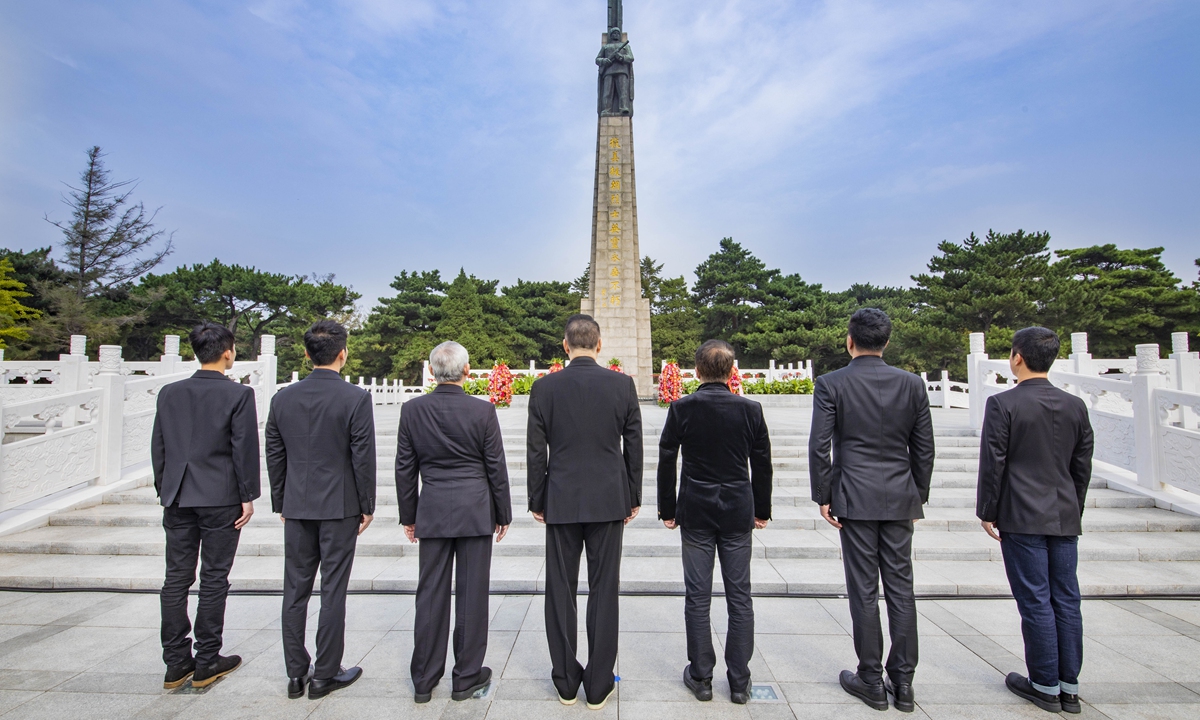
A poster of the film the Battle at Lake Changjin shows in a cinema. Photo: VCG
The highly anticipated Chinese war epic film The Battle at Lake Changjin about the Korean War (1950-53) debuted around the country on Thursday, coinciding with China's eighth Martyr's Day on September 30 which commemorates Chinese national heroes who sacrificed life to protect the motherland.
The box-office takings for the movie, directed by Chen Kaige and two Hong Kong directors, Dante LAM Chiu-Yin and Tsui Hark, surpassed 100 million yuan ($15.4 million) within about five hours of opening and easily eclipsed that of 2020 Chinese war epic The Eight Hundred.
The film's gross box office currently stands at 200 million yuan as of 9 pm Thursday night. The related hashtag has been viewed more than 300 million times on China's Twitter-like Sina Weibo.
The film tells the story of how Chinese People's Volunteers (CPV) soldiers held their ground amid fierce cold and the enemy's more advanced weapons at the War to Resist US Aggression and Aid Korea (1950-53), according to available information about the plot.
Stories of two Chinese soldiers' growth are focus of the film. The main characters were played by Wu Jing, director and star of the Wolf Warrior franchise, and Jackson Yee starring the school-bully-theme movie Better Days that got nominated at the 93rd Academy Awards.
In Zhengzhou, Central China's Henan Province, the Global Times has reached the very first patch of moviegoers, some of whom expressed their views.
"For me the story is beyond the war itself, as it shows the resilience of the Chinese nation," a viewer commented the true battle-based movie.
Changjin Lake (also known as the Chosin Reservoir by many) is located in North Korea. In November 1950, United Nations forces headed north to Yalu River, the border of China and North Korea, claiming to win the war by Christmas.
The war was on in severely cold winter with temperature of around -40 C. CPV soldiers did not only need to fight against United Nations forces, but had to battle over the nature with their strong will.
Chinese People's Volunteer Army confronted with the US contingent stationed near the lake and won the battle by fighting against impossible odds. The Battle of Changjin Lake became a pivotal moment in 'the War Against US Aggression and Aid Korea ̶ the term used to refer to the Chinese participation in the Korean War.
"Many details including the fighting scenes, and the depictions of the soldiers of both side gave me a strong feeling of this battle. Not everyone wanted to be involve in a war, but they had to because of a justified cause."

Cast of the film stand in silent tribute. Photo: Courtesy of Bona Film
Many theaters in Zhengzhou were already full as of 7pm on Thursday. The Global Times noticed that tickets for this movie on many online platforms are not available for purchase over the next few days with a major holiday period around the corner.
An audience member from the preview screening surnamed Xu from Beijing gave out a score of eight out of 10, and told the Global Times about the "outstanding part" of the movie, which he believes is quite different from many other war films he has watched.
Xu believes the movie depicts a touching story out of a big picture during the war.
"On one hand, the movie gives an explanation of the necessity of our Volunteer Army involving in this war. One the other, out of a rather small perspective, it gives a story of a young man's growth from a boy into a real warrior," which has made the audience involve themselves more in the movie.
"We need more movies like this, a movie telling us not just about the war but more of fresh and blood stories during the war, a true story reflecting Chinese resilience during every battle."
The three-hour movie has touched audiences with audience members expressing their lingering feels of the movie.
"This is a great battle. The success and the heroic stories cannot be summarized within three hours," said a netizen on Weibo who also wrapped up the first movie trip.
Around 180,000 Chinese soldiers sacrificed their lives on the battlefield in Korea Peninsula, according to official statistics. The cast of the movie, including major actors, went to a martyr commemorative park in Shenyang, Northeast China's Liaoning Province on Thursday, the special day to commemorate these heroes, the Paper newspaper reported.
One employee of Bona Film, the production company behind the film, shared a group of photos with the Global Times, showing that the cast queuing a line stand in silent tribute to martyrs in the park, and said that the commemorative park is a must-go place for the cast of the movie.
The cost of movie exceeded 1.3 billion yuan, making it the most expensive movie in Chinese history. Over 70,000 people were hired as extras in some of the larger battle scenes, according to Tencent News.


